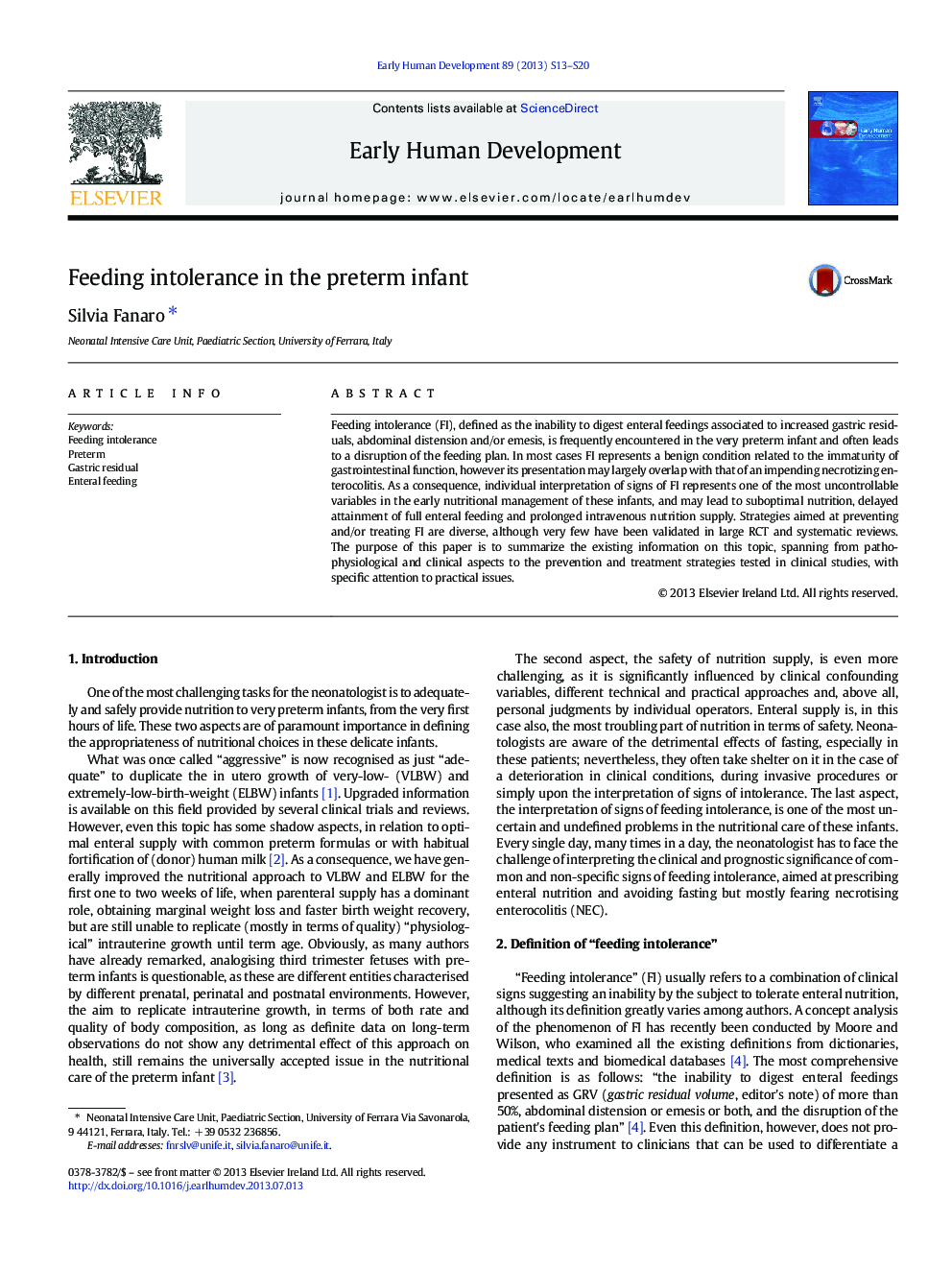| Article ID | Journal | Published Year | Pages | File Type |
|---|---|---|---|---|
| 3917018 | Early Human Development | 2013 | 8 Pages |
Feeding intolerance (FI), defined as the inability to digest enteral feedings associated to increased gastric residuals, abdominal distension and/or emesis, is frequently encountered in the very preterm infant and often leads to a disruption of the feeding plan. In most cases FI represents a benign condition related to the immaturity of gastrointestinal function, however its presentation may largely overlap with that of an impending necrotizing enterocolitis. As a consequence, individual interpretation of signs of FI represents one of the most uncontrollable variables in the early nutritional management of these infants, and may lead to suboptimal nutrition, delayed attainment of full enteral feeding and prolonged intravenous nutrition supply. Strategies aimed at preventing and/or treating FI are diverse, although very few have been validated in large RCT and systematic reviews. The purpose of this paper is to summarize the existing information on this topic, spanning from patho-physiological and clinical aspects to the prevention and treatment strategies tested in clinical studies, with specific attention to practical issues.
